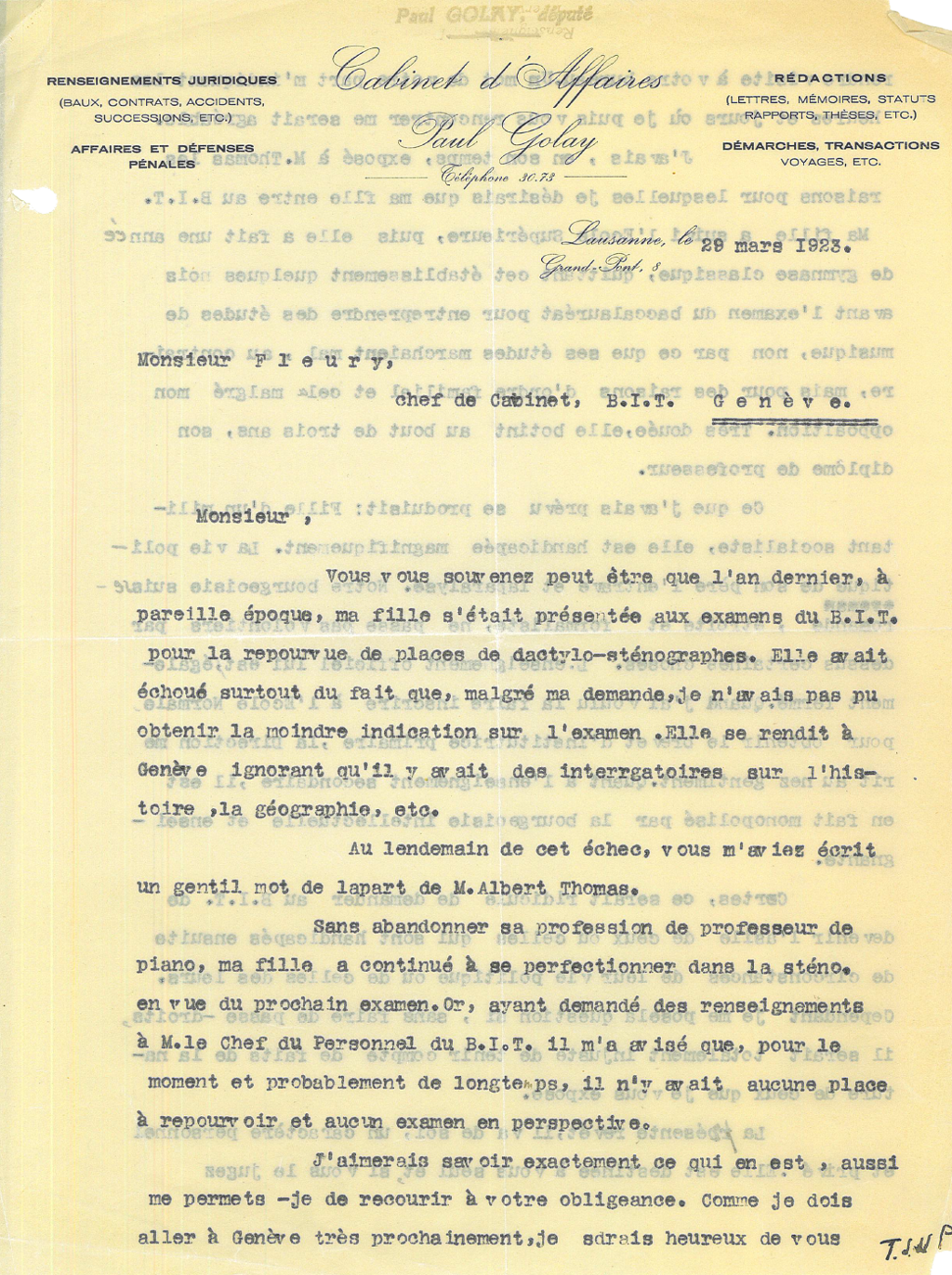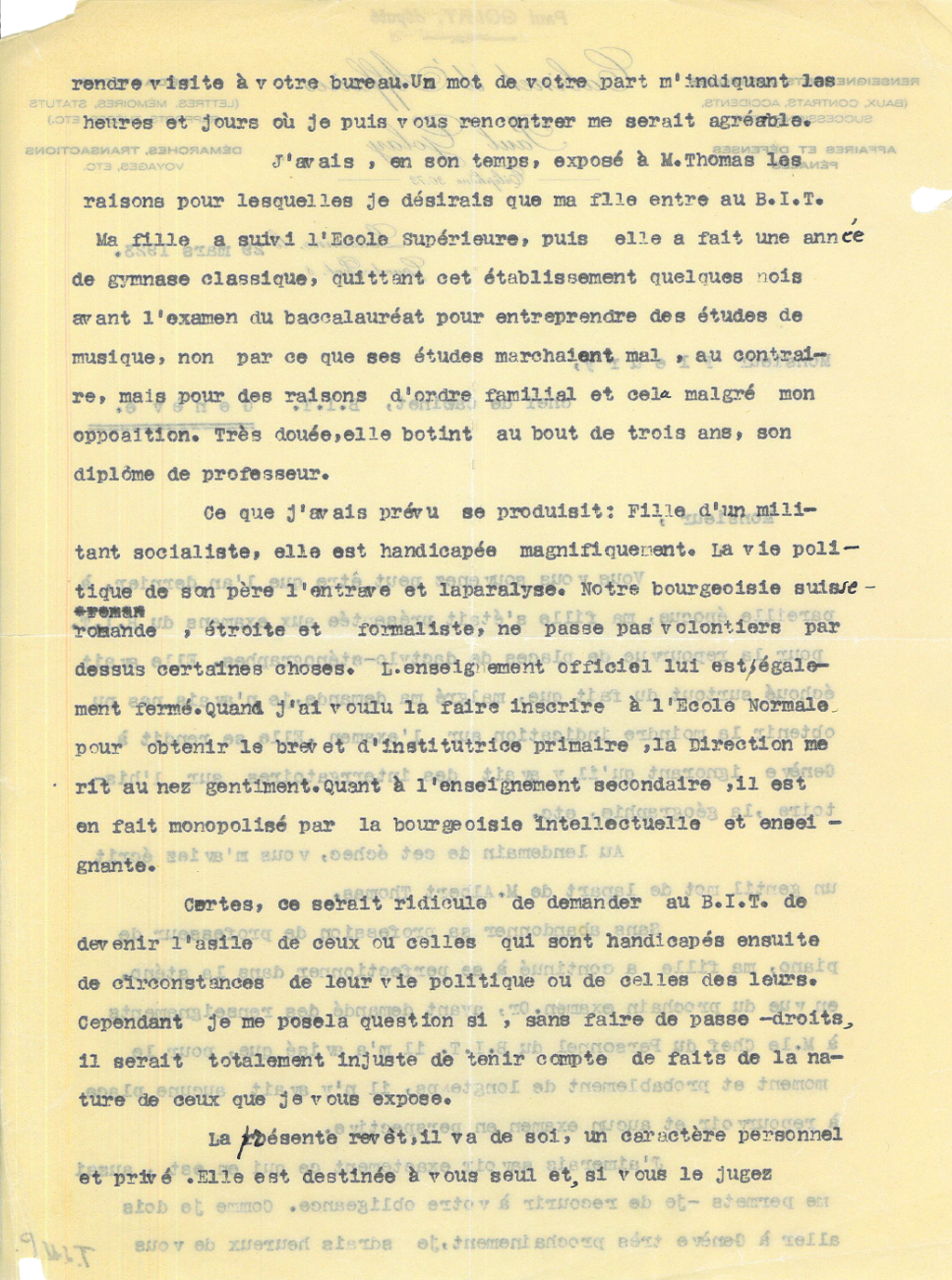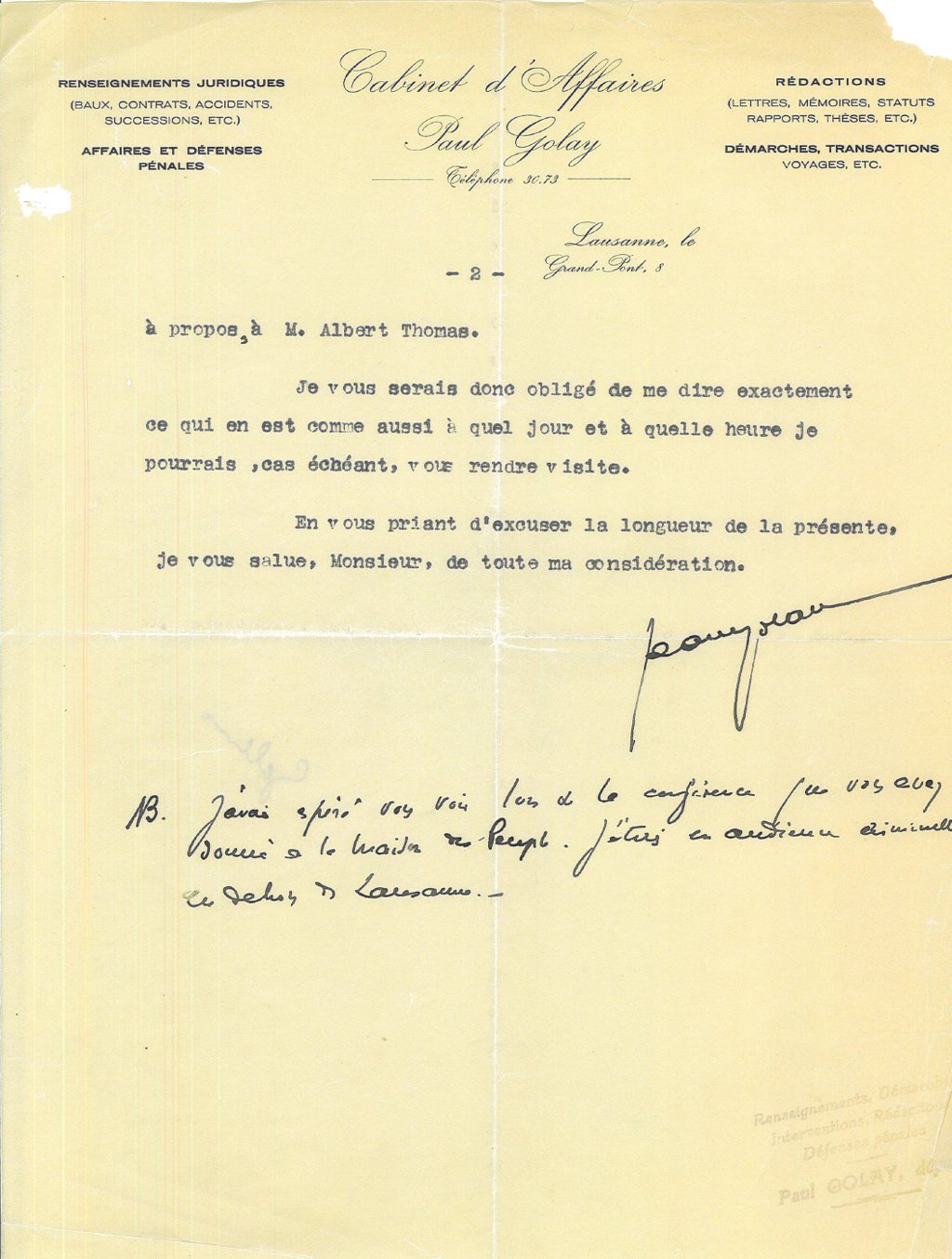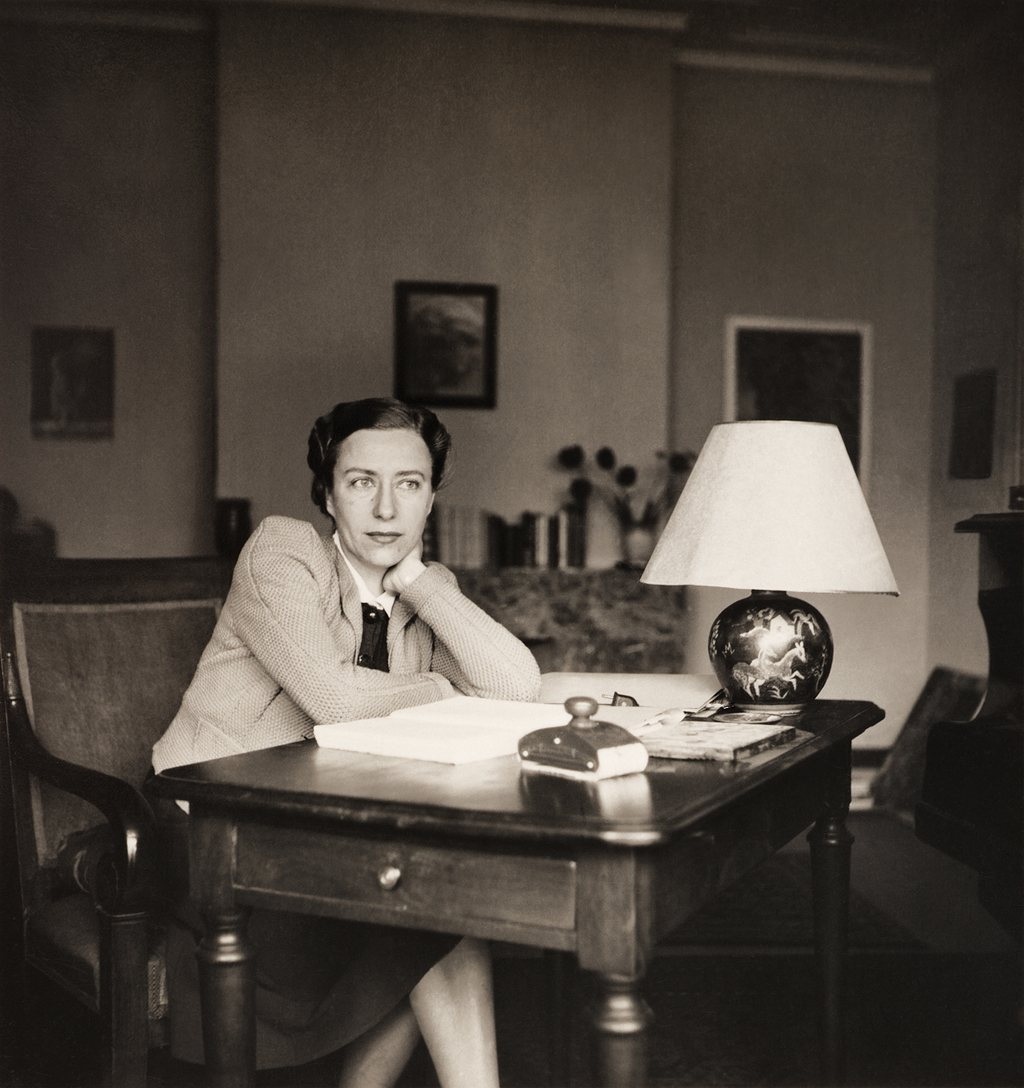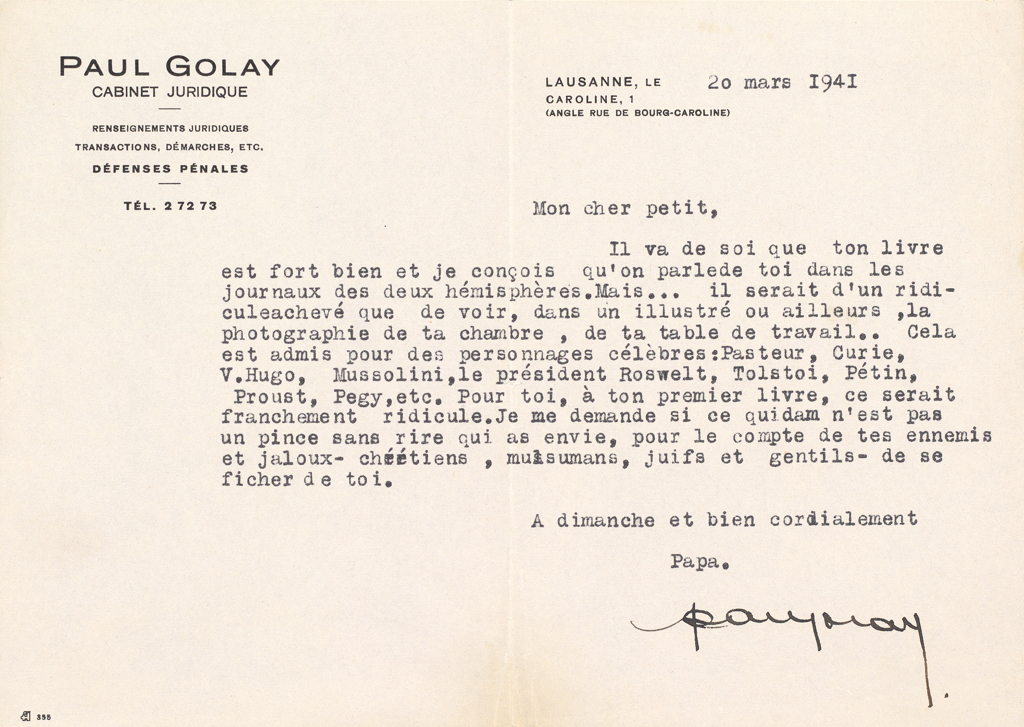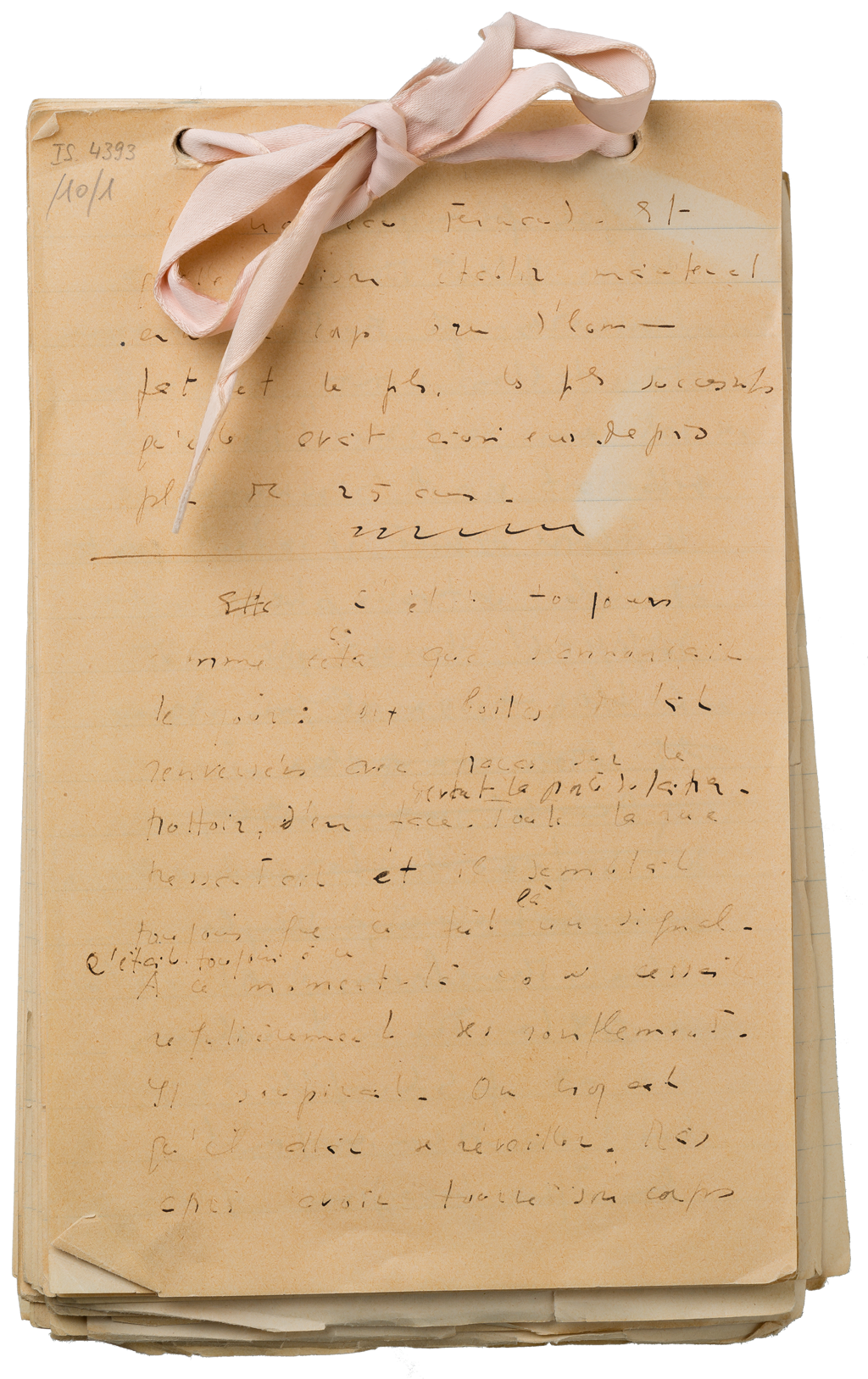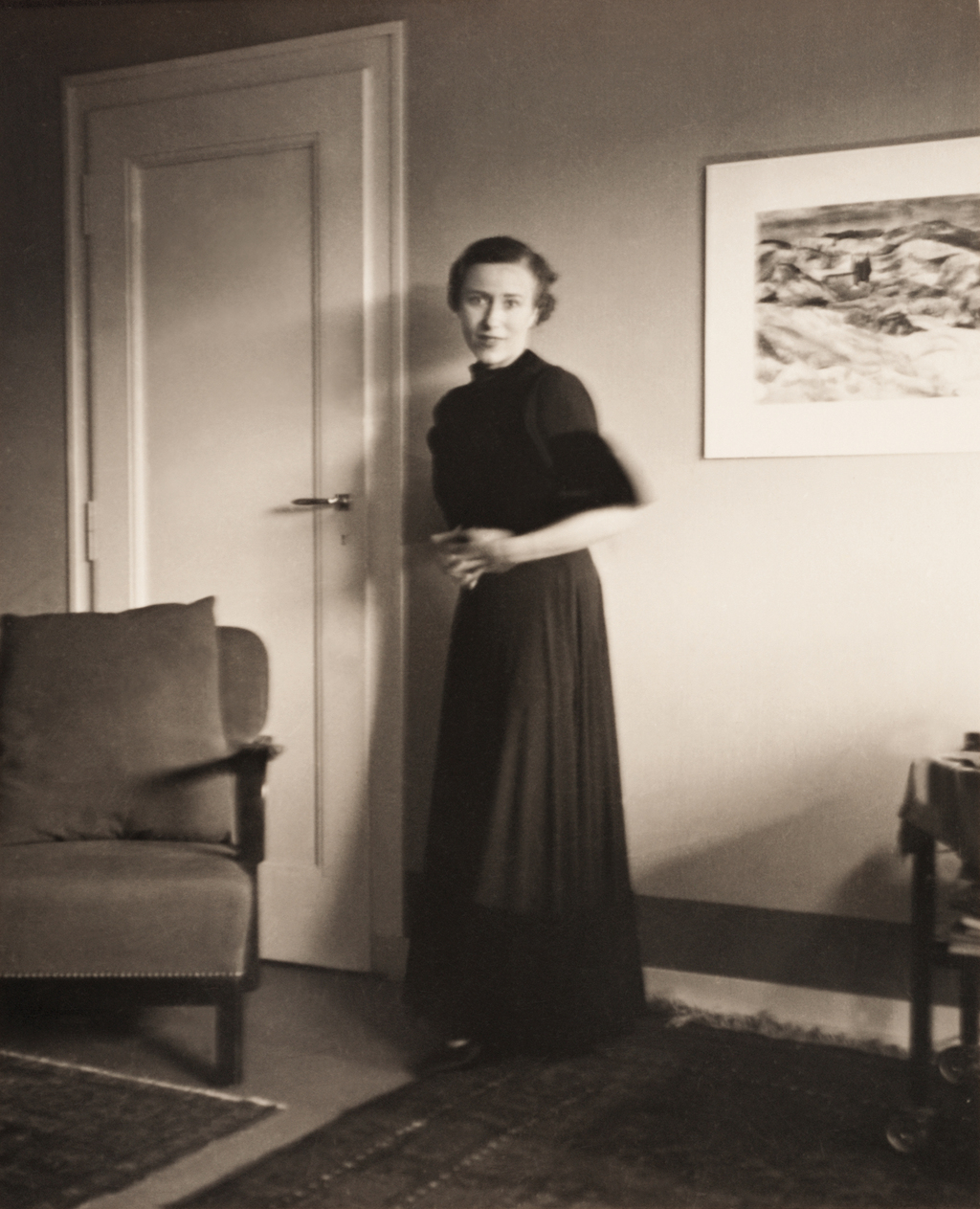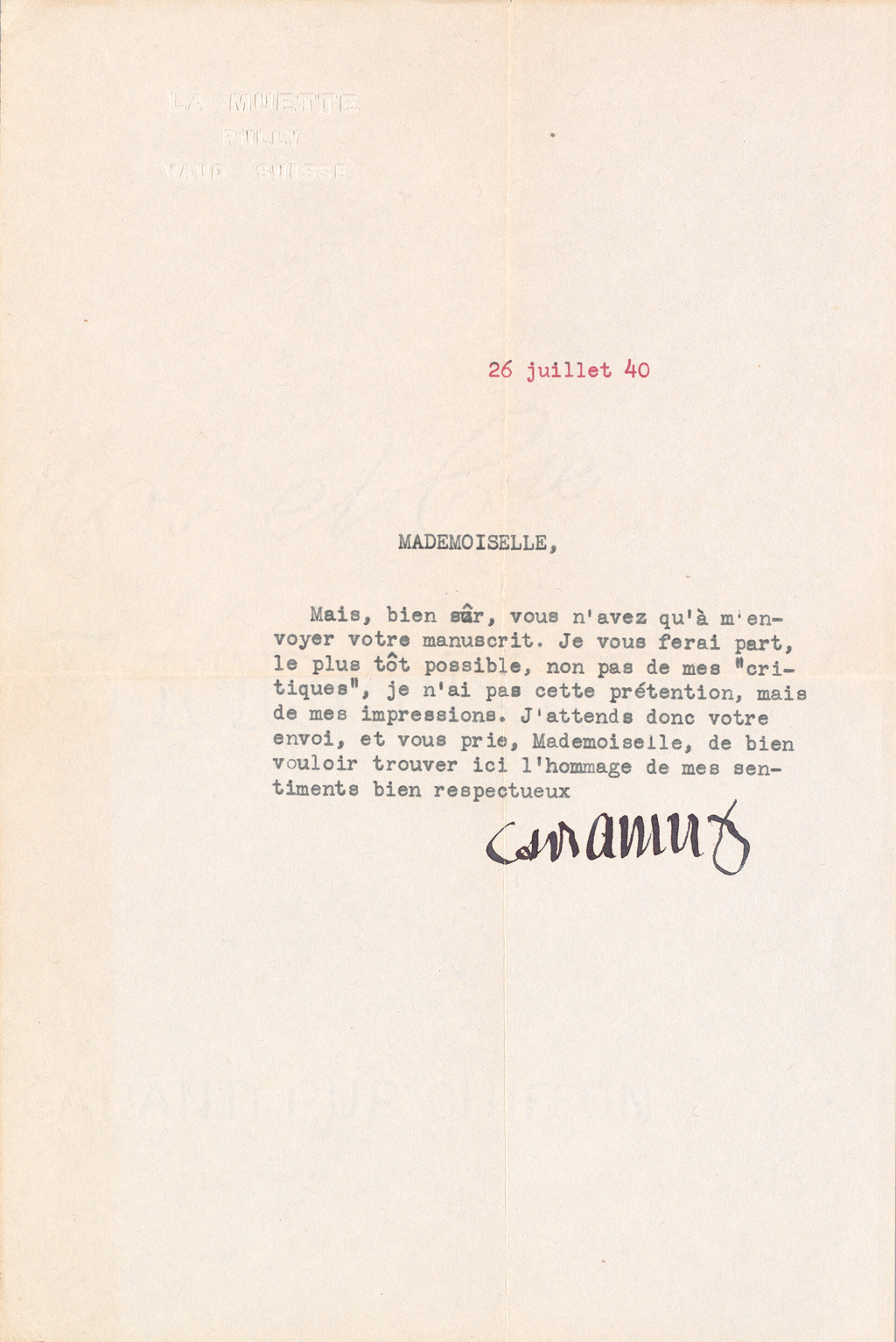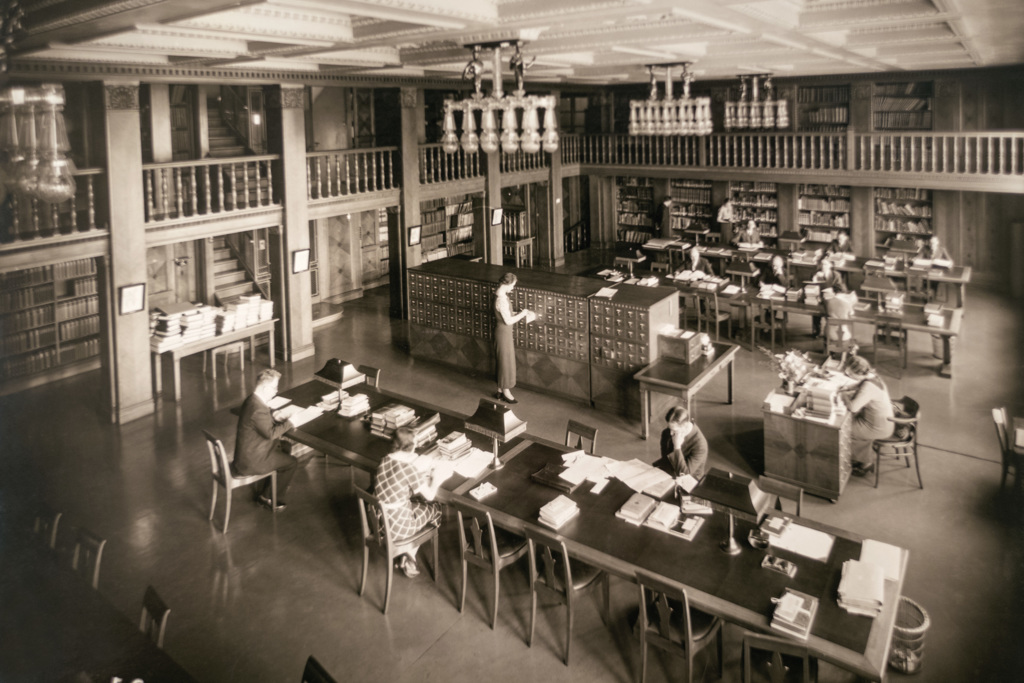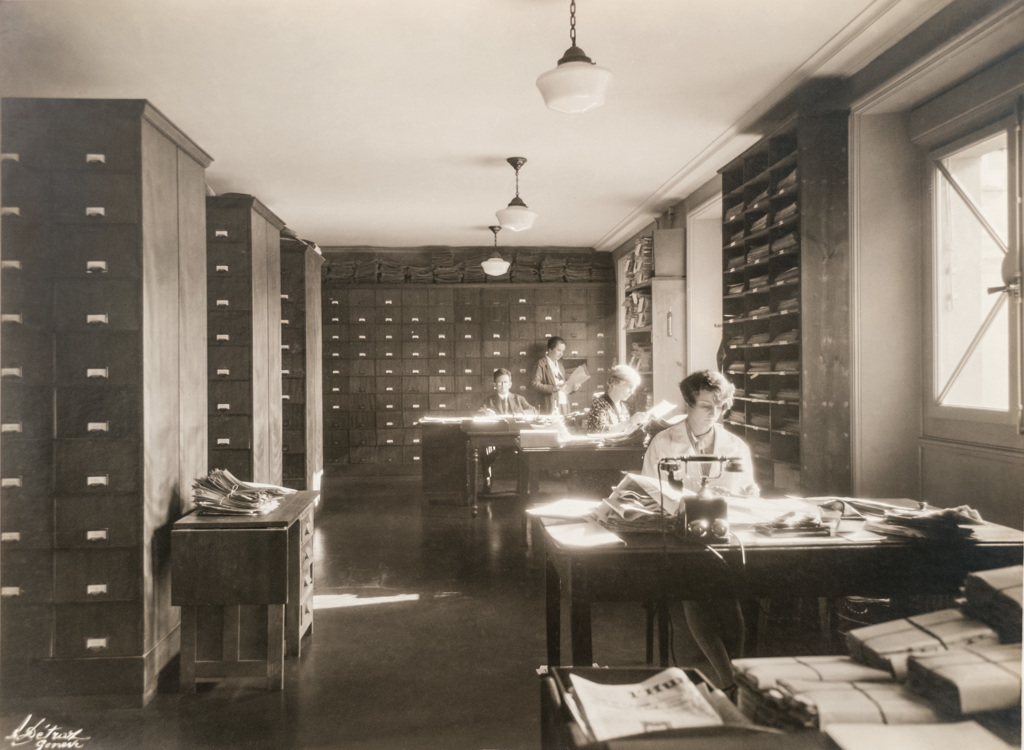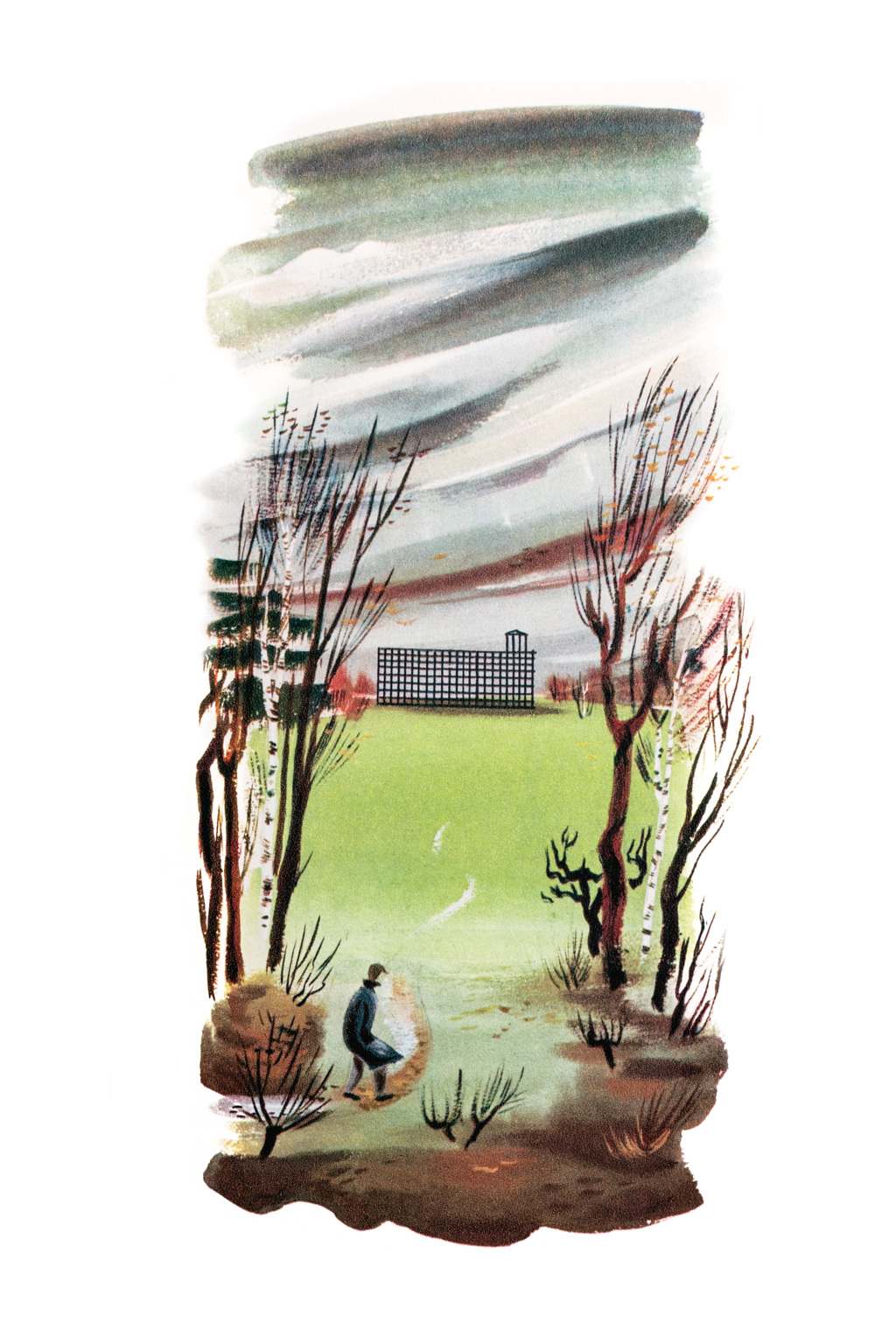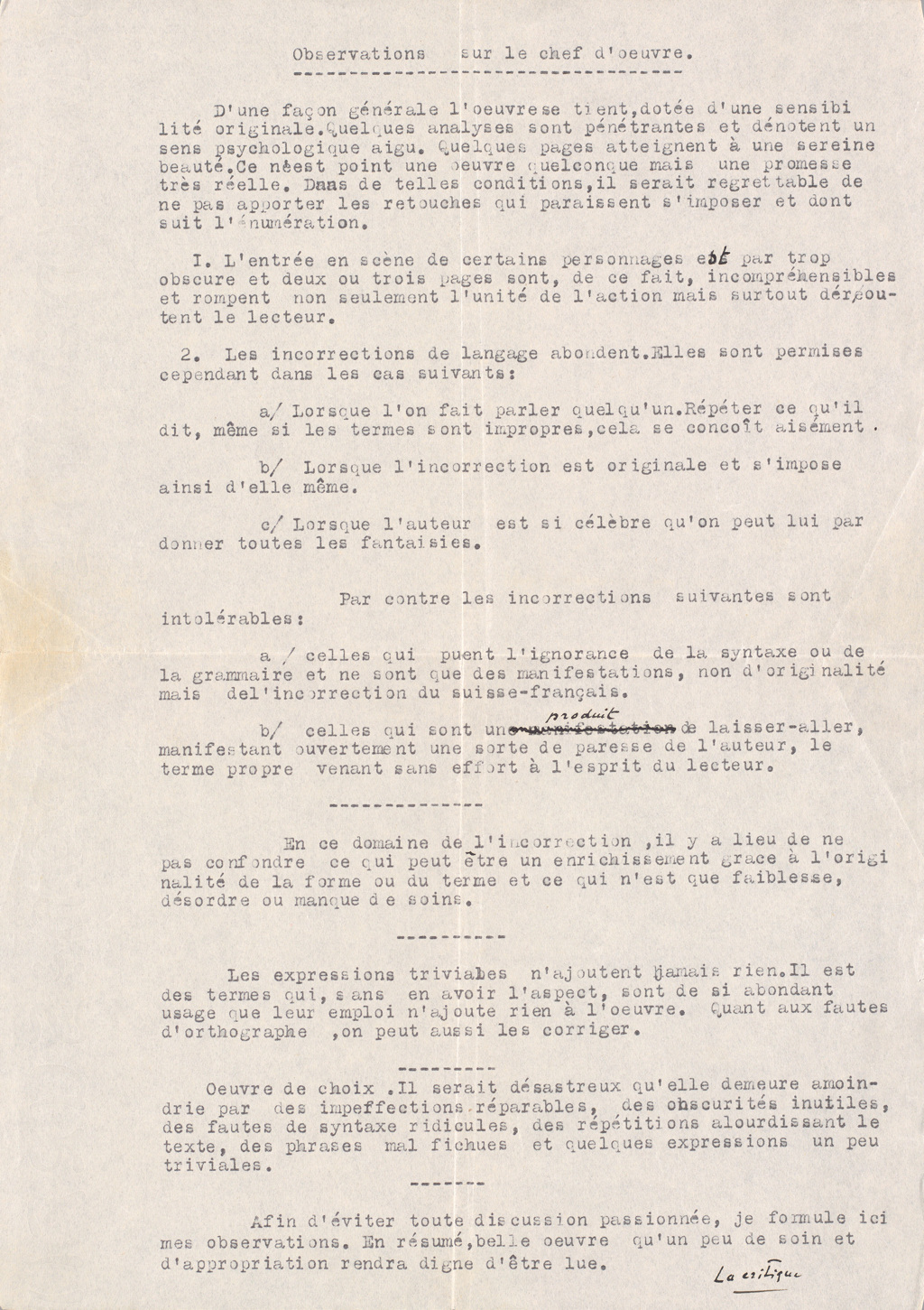In 1925, Alice Rivaz née Golay started work at the International Labour Office (ILO) and moved to Geneva. Writing was her life’s focus, but her secretarial job took up all her time. Her first novel was only published in 1940. She sent her manuscript for Nuages dans la Main to C.F. Ramuz, who was struck by the quality of this novel and immediately sent it to the editor of the Guilde du Livre. Thenceforth, Alice Golay assumed Alice Rivaz as her pen name and was awarded the Prix Schiller in 1942. This accolade marked the advent of one of the outstanding female novelists of the 20th century.
Keywords
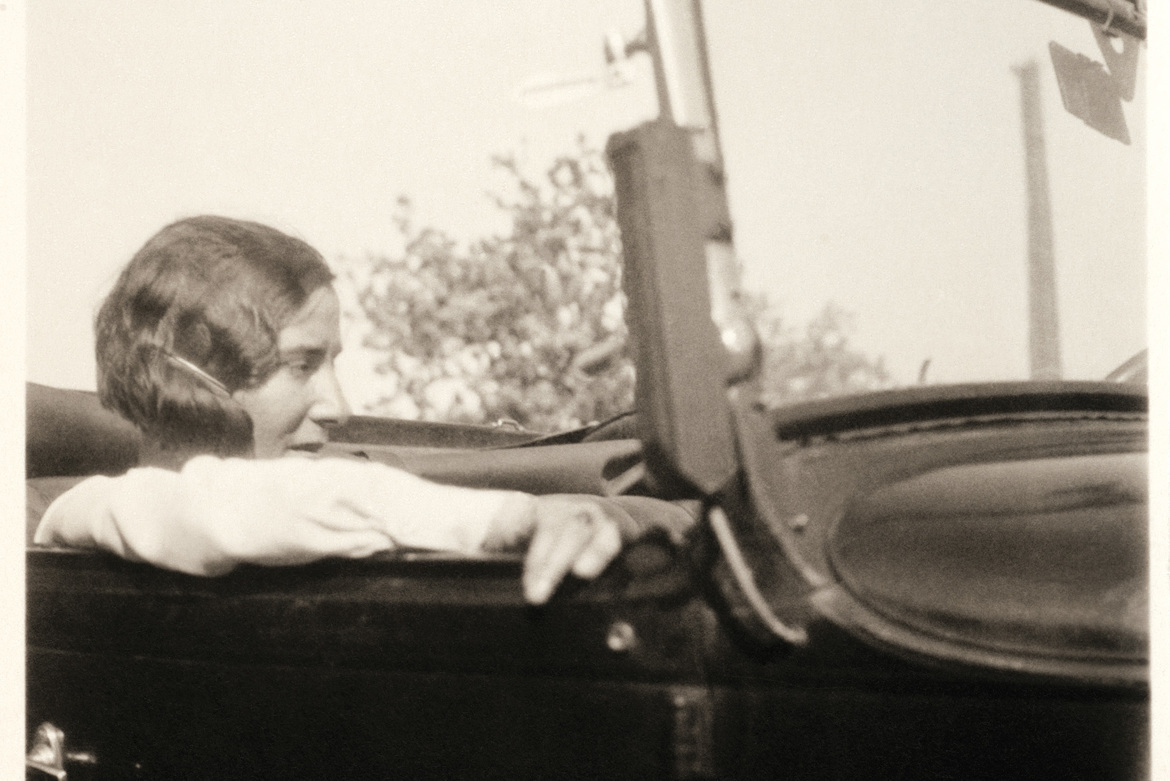
Writing history
The author questions the normality of sheltered lives, and their blindness in the aftermath of the First World War.

